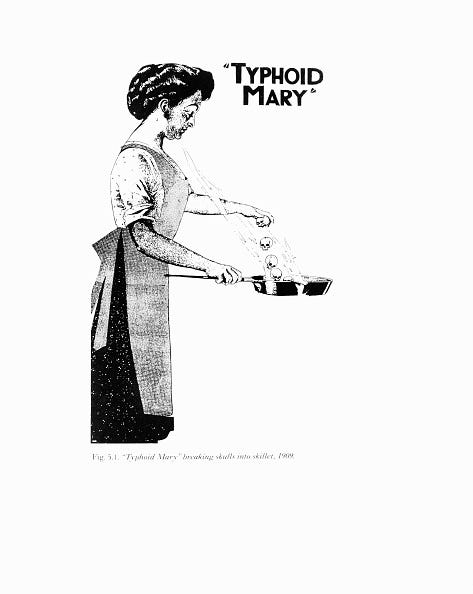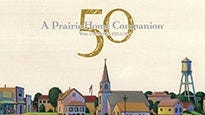|
 |
The Writer's Almanac from Wednesday, March 27, 2013
"Moose in the Morning" by May Sarton, from Collected Poems. © Norton, 1993.
ORIGINAL TEXT AND AUDIO - 2013
A group of miners called The Mariposa Battalion entered the Yosemite Valley on this date in 1851, hoping to drive out a tribe of Native Americans who lived in the Sierra Nevada Mountains and were threatening the miners' claims to the land and its ore.
One member of the party, Dr. Lafayette Bunnell, was bowled over by the valley's magnificence. He later wrote: "As I looked, a peculiar, exalted sensation seemed to fill my whole being, and I found my eyes in tears with emotion." Bunnell thought he named the valley after the Indian tribe they were pursuing, but he was mistaken. The tribe was called the Ahwahneechee people. "Yosemite" was the name given them by the other tribes in the region as an insult, and it meant "Those who kill."
On this date in 1915, the woman known as "Typhoid Mary" was put into quarantine in a cottage in the Bronx. Her name was Mary Mallon, a large and fiery 40 year old Irish-American woman. She worked as a cook in and around New York City, and every household she worked in seemed to suffer an outbreak of typhoid fever. Typhoid is caused by a form of Salmonella bacteria, and is usually spread by contact with human or animal waste. It was common on battlefields — it may have killed more than 200,000 soldiers during the Civil War — and in poor and unsanitary housing conditions, but it was rarely seen in the wealthy households like the ones where Mallon worked.
The first outbreak associated with Typhoid Mary occurred in 1900, in Mamaroneck, New York. She had been cooking for a family for about two weeks when they started to become ill. The same thing happened the following year, when she took a series of jobs in Manhattan and Long Island. She helped take care of the sick, not realizing that her presence was probably making them worse.
In 1906, a doctor named George Soper noticed this strange pattern of outbreaks in wealthy homes. He went to interview each of the families, and found that they had all hired the same cook, but she never left a forwarding address when she moved on to other employment. He finally tracked her down after several cases in a Park Avenue penthouse, so he interviewed her. She didn't take it well, and swore at him, and threatened him with a meat cleaver when he asked her to provide a stool sample. He finally called in the police and had her arrested.
Urine and stool samples were taken from Mallon by force, and doctors discovered that her gall bladder was shedding great numbers of typhoid bacteria. She admitted that she never washed her hands when cooking, but she didn't see the point, as she was healthy. No one had ever heard of a healthy carrier of typhoid before, and she refused to believe that she was in any way sick. They wanted to take out her gall bladder, and she refused. They demanded that she give up cooking, and she refused to do that too. They confined her for a while and put her to work as a laundress for the Riverside Hospital, and in 1910 — after she promised to give up cooking and only work as a laundress — she was released. It wasn't long before she changed her name to Mary Brown and took a job as a cook. For the next five years, she stayed one step ahead of the doctors and the law, spreading disease and death in her wake, until they caught up with her on Long Island. Authorities placed her in quarantine on North Brother Island in the Bronx for the rest of her life, and she died of pneumonia in 1938.
Today is the birthday of the humorist John O'Farrell, born in Oxfordshire, England (1962). He had some success as a child actor, and studied drama and English at Exeter University, but gave up acting in favor of writing. He's a columnist, a stand-up comedian, and an author. And for many years, he worked as a writer for The Spitting Image, a British satirical puppet show on television in the 1980s and '90s. He's written three novels and several books of nonfiction, including An Utterly Exasperated History of Modern Britain: or Sixty Years of Making the Same Stupid Mistakes as Always (2009). His fourth novel, The Man Who Forgot His Wife (2012), was nominated for the Bollinger Everyman Wodehouse Award — the only UK literary prize for comic fiction.
It's the birthday of director Quentin Tarantino, born in Knoxville, Tennessee (1963), and raised in Los Angeles, near the airport. He dropped out of high school after ninth grade, took some acting classes, worked as an usher at an adult theater, and rewrote screenplays from memory. He skipped film school in favor of a job at a big video store in Southern California, where he and his co-workers — all aspiring filmmakers — watched and analyzed movies all day. He got a few small acting jobs, and sold a couple of screenplays, but, as the cliché goes, he really wanted to direct. He got his break when Harvey Keitel read one of his scripts; Keitel was impressed, so he helped Tarantino get the movie produced. That was Reservoir Dogs (1992). Two years later came his big hit, Pulp Fiction (1994).
Tarantino won the Academy Award for Best Original Screenplay for Django Unchained (2012), a spaghetti western set in the Deep South, about a slave-turned-bounty hunter's quest to find his estranged wife in the Deep South.
Today is the birthday of novelist and poet Julia Alvarez, born in New York City (1950). She grew up in the Dominican Republic and came back to New York when she was 10 years old. She often writes about the experience of being caught between two cultures; her first book was a collection of poetry called Homecoming (1984), and her first novel, How the García Girls Lost Their Accents (1991), was based on the experiences Alvarez and her sisters had upon coming to New York. She also wrote a nonfiction book, Once Upon a Quinceañera (2007), about the tradition of throwing elaborate 15th birthday parties for young Latina women.
Be well, do good work, and keep in touch.®
A Prairie Home Companion’s 50th Anniversary Tour comes to Akron, OH with our Special Guests: Heather Masse, Christine DiGiallonardo, and our actors, Sue Scott, Tim Russell & Fred Newman, and Richard Dworsky, Richard Kriehn, Chris Siebold, Larry Kohut. Click below for ticket details!
If you are a paid subscriber to The Writer's Almanac with Garrison Keillor, thank you! Your financial support is used to maintain these newsletters, websites, and archive. If you’re not yet a paid subscriber and would like to become one, support can be made through our garrisonkeillor.com store, by check to Prairie Home Productions, P.O. Box 2090, Minneapolis, MN 55402, or by clicking the SUBSCRIBE button. This financial support is not tax deductible.


